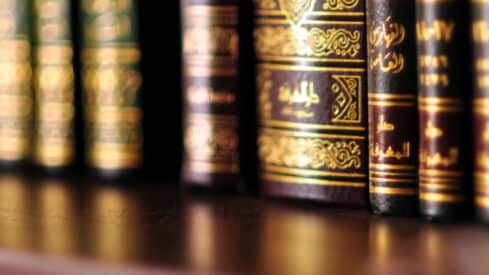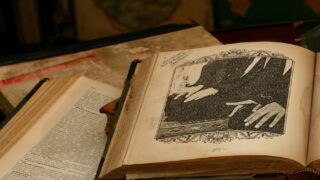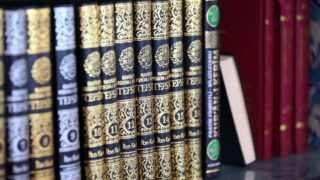The methodology of assessing the Prophet’s Sunnah by comparing it to the Qur’an is an ancient and recurring discourse. This idea, propagated historically by non-specialists and recently revived by modernists, has gained traction among some people. They judge the validity of hadiths by exposing them to the Qur’an, a practice that lacks a comprehensive understanding of the principles of hadith criticism and logic.
Narrations Advocating Exposure to the Qur’an
Several narrations purportedly support the idea of exposing hadiths to the Qur’an for validation. For instance:
- Hadith 1: “If a hadith is narrated from me, expose it to the Book of God. If it conforms with it, accept it, and if it does not, then reject it.” [1]
- Hadith 2: “Whatever comes to you from me, present it to the Book of God. If it conforms with it, then I said it, and if it does not, I did not say it.” [2]
- Hadith 3: “Sayings from me are three: whatever hadith conveyed to you from me that you know aligns with the Book of God Almighty, accept it; whatever hadith reported to you from me that you did not find in the Qur’an or contradicts it, reject it.”
These narrations suggest that the authenticity of hadiths should be measured against the Qur’an.
Logical Examination of the Methodology
From a logical standpoint, the Sunnah’s status is intrinsically tied to the Qur’an in terms of confirming narrations. The Qur’an, being undoubtedly authentic and transmitted through a mutawatir (successive) chain, serves as the primary source. Hence, it seems logical to expose hadiths to the Qur’an to ascertain their authenticity, fulfilling the conditions of acceptance that include non-contradiction with the Qur’an.
Historical and Scholarly Perspectives
Some Hanafi scholars and theologians have adopted this approach. Abu Al-Mudhafar Al-Samaani noted that a group of Abu Hanifa’s companions believed in exposing hadiths to the Qur’an. If there was no contradiction, the hadith was accepted; otherwise, it was rejected. This view is shared by many theologians.
Abu Zayd al-Dabbousi al-Hanafi argued that single-narrator reports should be critically evaluated by comparing them to the Book of God. If a hadith contradicts the Qur’an, it should be rejected because the Qur’an is undoubtedly certain while single-narrator reports are inherently suspect.
However, contemporary scholars argue that such narrations promoting this methodology are not authentic. Critics like Ibn Mahdi and Ibn Ma’in, alongside modern scholars, suggest these narrations are fabrications by heretics.
Evaluating the Methodology’s Validity
The methodology of assessing hadiths by exposing them to the Qur’an faces several criticisms:
Rejection by Majority Scholars
The majority of hadith scholars do not endorse this methodology. They emphasize the independent evidentiary value of authentic prophetic narrations.
Consensus of Scholars
The critical methodology developed by hadith scholars is robust, ensuring the purity and preservation of the Prophet’s Sunnah. The conditions for authenticating a hadith include ensuring it is not anomalous or flawed, making additional validation against the Qur’an unnecessary.
Consensus on Following the Sunnah
The Qur’an commands Muslims to follow the Prophet’s Sunnah. Scholars like Imam Ibn Hazm and Imam Al-Shafi’i highlight that no authentic hadith contradicts the Qur’an. They argue that the Sunnah either clarifies or complements the Qur’an.
Imam Al-Shafi’i’s Stance
Al-Shafi’i refutes the idea that the Sunnah should be exposed to the Qur’an, asserting that the Sunnah is a binding source of guidance on its own.
Warnings Against Rejection
Hadiths like “I have been given the Qur’an and something like it” warn against rejecting the Sunnah in favor of solely following the Qur’an.
Conclusion
The methodology of exposing the Sunnah to the Qur’an for validation is not supported by authentic narrations and lacks endorsement from the majority of hadith scholars. The robust critical methodologies developed by these scholars ensure the authenticity and preservation of the Prophet’s Sunnah. This approach, grounded in comprehensive knowledge and rigorous scrutiny, safeguards the integrity of Islamic teachings. The modernist application of this methodology, often aimed at undermining the Sunnah, fails to appreciate the established principles of hadith criticism and the harmonious relationship between the Qur’an and the Sunnah.
By Lukman Abdul Salam


















